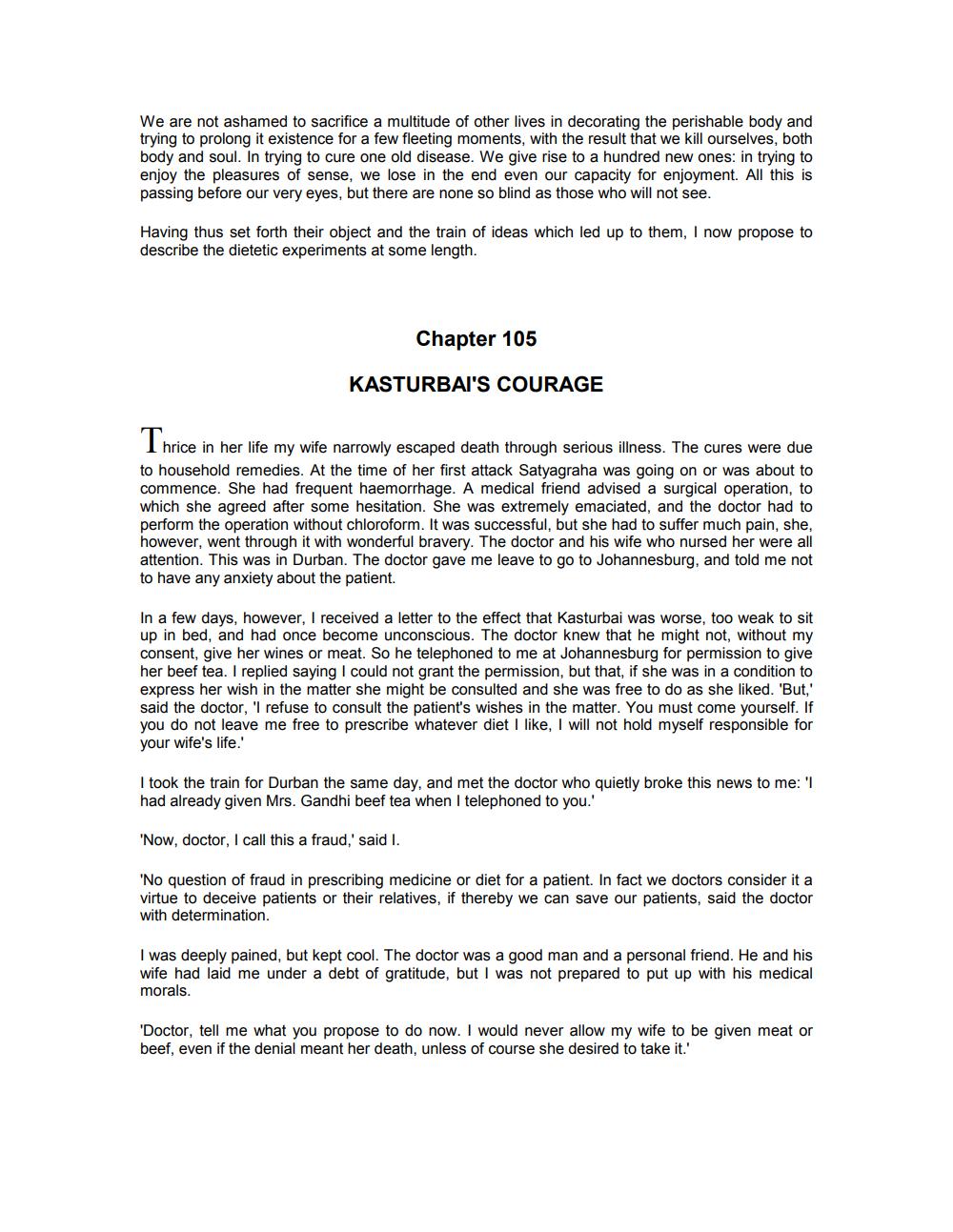________________
We are not ashamed to sacrifice a multitude of other lives in decorating the perishable body and trying to prolong it existence for a few fleeting moments, with the result that we kill ourselves, both body and soul. In trying to cure one old disease. We give rise to a hundred new ones: in trying to enjoy the pleasures of sense, we lose in the end even our capacity for enjoyment. All this is passing before our very eyes, but there are none so blind as those who will not see.
Having thus set forth their object and the train of ideas which led up to them, I now propose to describe the dietetic experiments at some length.
Chapter 105
KASTURBAI'S COURAGE
Ihrice in her life my wife narrowly escaped death through serious illness. The cures were due to household remedies. At the time of her first attack Satyagraha was going on or was about to commence. She had frequent haemorrhage. A medical friend advised a surgical operation, to which she agreed after some hesitation. She was extremely emaciated, and the doctor had to perform the operation without chloroform. It was successful, but she had to suffer much pain, she, however, went through it with wonderful bravery. The doctor and his wife who nursed her were all attention. This was in Durban. The doctor gave me leave to go to Johannesburg, and told me not to have any anxiety about the patient.
In a few days, however, I received a letter to the effect that Kasturbai was worse, too weak to sit up in bed, and had once become unconscious. The doctor knew that he might not, without my consent, give her wines or meat. So he telephoned to me at Johannesburg for permission to give her beef tea. I replied saying I could not grant the permission, but that, if she was in a condition to express her wish in the matter she might be consulted and she was free to do as she liked. But,' said the doctor, 'I refuse to consult the patient's wishes in the matter. You must come yourself. If you do not leave me free to prescribe whatever diet I like, I will not hold myself responsible for your wife's life.'
I took the train for Durban the same day, and met the doctor who quietly broke this news to me: 'I had already given Mrs. Gandhi beef tea when I telephoned to you.'
'Now, doctor, I call this a fraud,' said I.
'No question of fraud in prescribing medicine or diet for a patient. In fact we doctors consider it a virtue to deceive patients or their relatives, if thereby we can save our patients, said the doctor with determination.
I was deeply pained, but kept cool. The doctor was a good man and a personal friend. He and his wife had laid me under a debt of gratitude, but I was not prepared to put up with his medical morals.
'Doctor, tell me what you propose to do now. I would never allow my wife to be given meat or beef, even if the denial meant her death, unless of course she desired to take it.'




